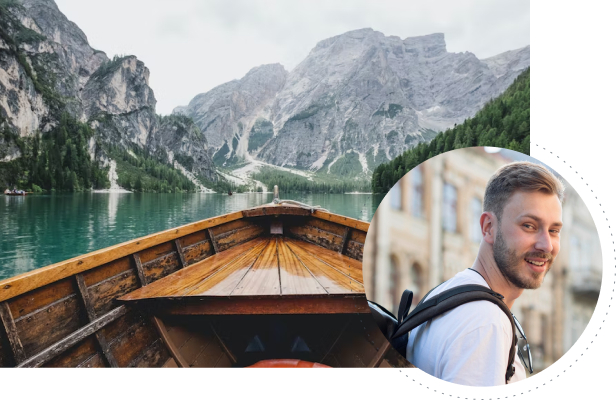Suggested length of stay
Zimbabwe is famous for its beautiful scenery, wildlife and history. You could easily lose yourself for 1-2 weeks. Below are our suggested length of stays in the key areas. Victoria Falls 2-4 nights, Mana Pools 3-5 nights, Hwange 3-7 nights.
Modes of transport
Road
A valid driver’s licence in English is required when driving in Zimbabwe. The general speed-limit in Zimbabwe is 120km/h on open roads and 60 km/h in urban areas, but watch for the signs.
Air
From Australia, you will fly into O.R. Tambo Airport in South Africa before transferring to Zimbabwe. There are direct flights between Johannesburg and Victoria Falls.
Climate
Zimbabwe has three distinct seasons:
April to October – Best time seasonally, with sunny days and cold, clear nights.
November to April – The rainy season is beautiful, with sporadic rain and dramatic afternoon electrical storms.
July to September – Peak season brings prime wildlife viewing, optimal white-water rafting and canoeing the Zambezi.
Food
Camps, hotels and lodges cater to overseas visitors and will often serve international cuisine. Food quality prepared in the most remote bush camps astounds many visitors. If you do have any special dietary requirements, please let your specialist know, and we can arrange for the lodges and hotels to cater for your requirements. Zimbabwe’s native cuisine is based on Sadza, a cornmeal made from ground maize. This is usually served with a tasty relish of meat, fish or vegetables.
Drinking water
The tap water in Zimbabwe is not safe to drink, so ensure you consume bottled mineral water only, which is widely available. When visiting remote areas it is advisable to use purification tablets or drink bottled mineral water. Plenty of water must be drunk to prevent dehydration.
Visas
Australian citizens require a visa for stays up to 30 days. The visa can be obtained on arrival for approximately USD$30 for a single entry. Oasis accepts no responsibility regarding the issue of visas.
Money
The US dollar remains the legal currency of Zimbabwe. As of 28 November 2016, the Reserve Bank of Zimbabwe introduced new ‘Bond Notes’ as legal tender alongside the US dollar. These ‘Bond Notes’ are valued at a 1:1 parity with the US dollar. The ‘Bond Notes’ will be released in small denominations (up to $US5). Travellers cannot withdraw cash from international debit cards through ATMs, so you need to take enough cash into Zimbabwe for the duration of your stay. It is illegal to leave Zimbabwe with more than USD $1,000 (or equivalent) in cash. It is also illegal to exchange foreign currency anywhere other than at officially licensed dealers. Please check with hotels and other service providers whether they will accept credit card payments prior to arrival.
Inoculations & health precautions
Malaria is present in many parts of the country. Swimming in the country’s rivers and dams is not advisable as they may be infected with bilharzia. Please ensure good medical insurance before you travel and consult your general practitioner.
Consulate Assistance
Australian Ambassador to Zimbabwe
1 Green Close
Borrowdale, Harare
Telephone: + 263-4 853 235 55
Facsimile: + 263-4 870 566
Email: zimbabwe.embassy@dfat.gov.au
Electricity
Voltage: 220-240 Volts
Getting there
Qantas is the main International airline that departs from Australia.
Non-stop flight time Sydney – Johannesburg approximately 14 hours
Non-stop flight time Johannesburg – Victoria Falls approximately 1.5 hours
Time difference GMT: +2 hours
Tipping Guideline
Guide – USD$10 per person per day
Camp Staff – USD$5 per person per day
10% Restaurant bills.

Ready to discuss your trip to Zimbabwe?
Speak to one of our travel specialists and we’ll create your personalised itinerary just for you.
